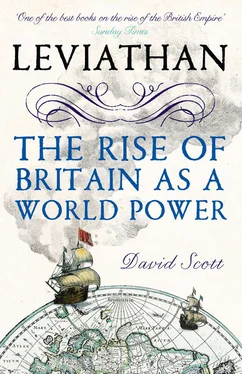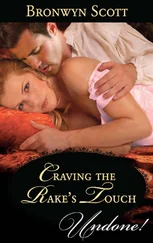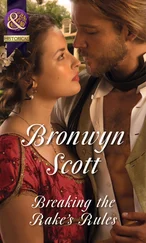At the heart of medieval piety was the miracle of the Mass and its saving power for both the living and the dead. The increasing use of printed books of prayer among England’s educated, mostly town-dwelling, literate minority may have encouraged a more inward-looking, intellectual kind of devotion, but very few people questioned the idea of constant supernatural intervention in human affairs. Nor had there been any significant challenge to the Church’s teachings since the early fifteenth century. There was no effective movement of religious dissent in England – only the Lollards, or ‘mumblers’, who were a highly amorphous group, with no agreed agenda or political influence. Most of them lived unobtrusively in the villages of southern England, attending church like their orthodox neighbours, but also meeting secretly to read their illicit vernacular bibles (the church authorities in England had banned all translations of the Scriptures save those in Latin) and to criticise and ridicule priestly authority, transubstantiation, and any clerical teachings for which they could find no warrant in the Scriptures.
If late fifteenth-century England was small and relatively poor compared with its continental rivals, it was nevertheless precocious in terms of its political culture. Lowland England – roughly the southern and home counties and the Midlands – was unusual in its administrative and cultural uniformity. It was an area of mostly gentle terrain, with reasonably good access to London (at least in the warmer months, when travel on the unpaved roads was relatively easy), where the Anglo-Norman monarchy had created a complex and integrated central administration by 1250, complete with national courts of law and financial institutions, all operating through proper forms and channels. By 1485, therefore, lowland England had formed the core of the English state for centuries, and respect for crown, Parliament and the common law – England’s traditional, precedent-based legal code – was strong. In addition, the great majority of the people spoke the same language, albeit with a variety of distinctive regional accents. The nobility had switched from French to English long before the Tudor period – a process of linguistic colonisation that was picking up speed by the late fifteenth century. English was replacing Latin and legal French in a growing range of political, administrative and ecclesiastical contexts, and as it did so its vocabulary expanded and became ever more nuanced. The increasing sophistication and application of the English language encouraged, in turn, greater participation in public affairs and a wider sense of shared knowledge and assumptions. At the same time, there were strongly centralising forces at work in the growth of this participatory political culture. The trade in printed books that emerged following the introduction of the printing press to England by William Caxton ( c. 1415–92) in the mid-1470s was dominated by London. It was the London dialect that would become the standard for written English in Anglophone Britain and Ireland, and it was the political and cultural interests that clustered around the crown’s metropolitan centre that did much to set the intellectual agenda and shape public opinion throughout the Tudor realm.
Royal authority operated with little hindrance in southern England, reaching – through a variety of officials – from London to the shires and down to the meanest parish. Of course, there were parts even in the lowlands where simple topography rendered the structures of government comparatively weak – the East Anglian fens, for example, which were largely undrained in this period, or densely wooded areas, where settlements were often scattered and subject to fewer social and economic controls than the more arable regions, with their networks of manors and manorial courts. Generally, however, lowland England set the standard for civility and orderliness by which English monarchs judged their domains as a whole.
Yet beyond this centralised core, England was fragmented both ethnically and politically. For a start, it shared three major cultural borders: in the south-west with the Cornish – a distinct ethnic grouping with its own language; with their Celtic cousins the Welsh, who had settlements in the English counties adjoining the marcher lordships; and with the Scots. The Welsh lived more or less in harmony with the English. The Cornish could be more troublesome, as Henry VII would discover in 1497 (see below). But the real problem area in England, at least from the crown’s perspective, was its northern border with Scotland, where the two British kingdoms met and clashed. Even on the English side of that frontier there were considerable obstacles to exerting royal authority, for the rugged Pennine terrain and its scattered communities did not favour centralised control. Moreover, the threat of Scottish invasion and cross-border raids had promoted forms of administration that were geared to the needs of local defensive warfare, not to maintaining law and order. Between 1333 and 1502 (save for a brief period in the 1470s) there was no formal peace between England and Scotland, only a series of temporary truces. English monarchs generally had better things to do with their time and money than defending this remote region, so they devolved this duty, and the powers that went with it, upon their northern magnates. This, in turn, meant creating special offices and feudal franchises that lay outside the normal structures of English government. An unstable international frontier and weak civil authority were a recipe for lawlessness. The Anglo-Scottish borderlands were like Welsh marches, therefore, only very much worse. For even when England and Scotland were not at open war, the northern marches were prey to cattle rustling and feuding by clans from both sides of the border.
Henry had another vulnerable frontier to worry about besides the northern marches, and that was in Ireland. English monarchs had claimed lordship over Ireland since the Anglo-Norman invasion of the twelfth century. Ireland, so royal rhetoric would have it, was a dependency of the English crown. Yet by the late fifteenth century the full exercise of royal authority was limited to the hinterland surrounding Dublin, the seat of English administration in Ireland. This area, known as the maghery, formed the core of a larger and more amorphous territory, the Pale, which covered much of Leinster and Munster, the provinces closest to England and Wales. The Pale contained most of Ireland’s towns, ports and fertile land, and over half the island’s population of about half a million people. English customs and common law generally prevailed here, and leading Palesmen, who claimed descent from the Anglo-Norman settlers, considered themselves English. It was largely down to these ‘Old English’ lords to defend the Pale, which was under constant threat of raiding by the native (Gaelic) Irish. The Pale, therefore, was another unstable marcher society, just like the northern marches in England, and the crown’s solution to the problem had been virtually identical. Short of money, and with pressing concerns elsewhere, it had delegated the maintenance of war and justice to Old English nobility, ensuring that the Pale outside the maghery was at least under English influence, if not direct crown rule.
Beyond the Pale was a landscape dominated by mountains, woodland and bogs. This was the Gaedhealtacht: an area of Gaelic language, law and culture that stretched across most of the western and northern provinces of Connacht and Ulster and into the western Highlands of Scotland. The Irish in the Gaedhealtacht generally lived in loosely formed clans, leading a semi-nomadic existence based upon raising and raiding cattle. To the English they appeared ‘savage, rude, and uncouth’, the ‘wild men of the woods’. 5An early Tudor report on the state of Ireland divided Irish Gaeldom into over sixty territories, each of which was ruled by a clan chief who ‘makeyth warre and peace for hymself … and hathe imperiall jurysdyction within his rome [room], and obeyeth to noo other person, Englyshe ne Iryshe, except only to such persones, as maye subdue hym by the swerde’. 6
Читать дальше












